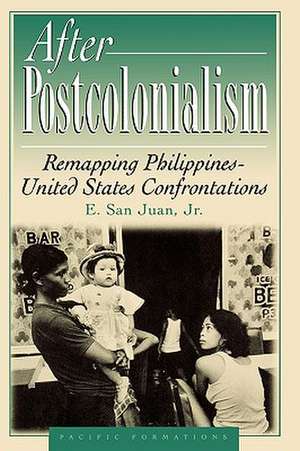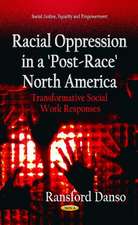After Postcolonialism: Pacific Formations: Global Relations in Asian & Pacific Perspectives
Autor E.Jr. San Juanen Limba Engleză Paperback – 24 mai 2000
Preț: 420.46 lei
Nou
Puncte Express: 631
Preț estimativ în valută:
80.45€ • 84.23$ • 66.57£
80.45€ • 84.23$ • 66.57£
Carte tipărită la comandă
Livrare economică 07-21 aprilie
Preluare comenzi: 021 569.72.76
Specificații
ISBN-13: 9780847698615
ISBN-10: 0847698610
Pagini: 272
Dimensiuni: 152 x 229 x 15 mm
Greutate: 0.4 kg
Editura: Rowman & Littlefield
Seria Pacific Formations: Global Relations in Asian & Pacific Perspectives
ISBN-10: 0847698610
Pagini: 272
Dimensiuni: 152 x 229 x 15 mm
Greutate: 0.4 kg
Editura: Rowman & Littlefield
Seria Pacific Formations: Global Relations in Asian & Pacific Perspectives
Notă biografică
Descriere
Caught betwixt the Asian continent and the hegemonic power of the United States, the Philippines occupies a contested space or borderland between past and present, East and West. Balancing the memory of colonial experience with an emergent nation-making dream, this innovative book asks if a meaningful future can be envisioned.














